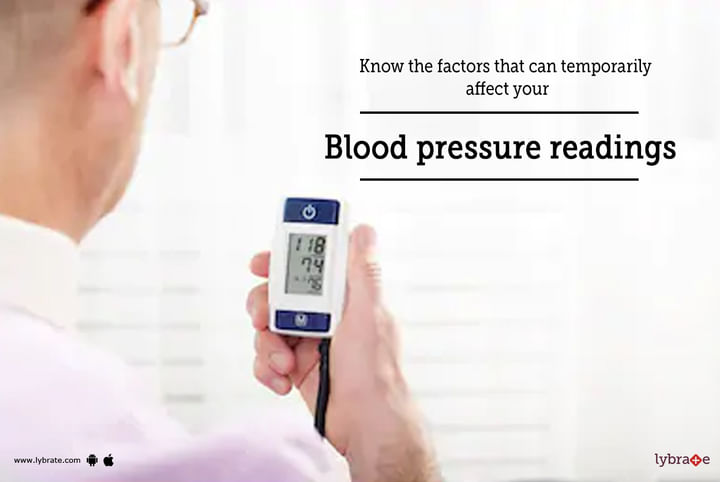Know the factors that can temporarily affect your blood pressure readings
If you have high blood pressure, you may have to follow up with your doctor regularly to keep track of blood pressure levels. Desirably, your blood pressure readings should be over 90/60mmHg and below 120/80mmHg.
It is only normal for your blood pressure to vary slightly through the day. However, if it changes regularly from very low to very high, then a range of complications could arise. Fluctuating blood pressure needs to be monitored and managed. But first, you must know about the factors that are likely to affect your blood pressure readings temporarily.
Fctors that can cause temporary but significant deviations in your blood pressure measurements –
-
Blood Pressure Cuff size – Proper sized blood pressure cuff must be used on the upper arm while measuring blood pressure. The measurements may not be accurate if the patient’s arm circumference does not fall within the Range indicators on the cuff. Studies show that using a small blood pressure cuff can increase the systolic blood pressure by 10-40mmHg.
-
Blood Pressure Cuff placed over clothing – When measuring blood pressure, the cuff must be placed on the arm directly. Clothing can affect your blood pressure readings by 10-50mmHg.
-
Not resting – To get an ideal blood pressure reading, it is important that you relax and rest comfortably for about 3-5 minutes before the measurement is taken. Activities like exercising and eating affects your systolic blood pressure reading by 10-20mmHg.
-
Unsupported feet/arms/back – Not resting or supporting your back, arms, and feet comfortably can also make a difference in your blood pressure readings. For instance, crossing your legs or placing your upper arms below your chest may result in higher measurement, whereas placing your upper arms above the chest can give you lower readings.
-
Emotional state – Anxiety or stress can cause your blood pressure readings to fluctuate. If you are constantly about or stressing over something while taking the measurement, then your blood pressure levels are likely to be elevated significantly. Studies show that even talking while getting your blood pressure measured can raise systolic blood pressure.
-
Smoking/caffeine/alcohol – Nicotine found in tobacco products and cigarettes can temporarily increase your blood pressure. Consuming caffeine or alcohol right before taking a blood pressure measurement can spike your levels drastically.
-
Temperature – Blood pressure levels tend to rise in cold temperature. Therefore, if you are visiting the clinic where the room temperature is slightly cold, the readings may be higher than expected.
-
Full Bladder – Blood pressure tends to be lower when your bladder is empty, and increases as your bladder get fuller. A full bladder at the time of measuring blood pressure can raise the levels by a significant margin.
Most people do not realize that their blood pressure readings are constantly changing every minute in response to their body position, mood, activity, and diet. Even if these factors seem trivial, you should be mindful before going for a routine health check-up.


+1.svg)
